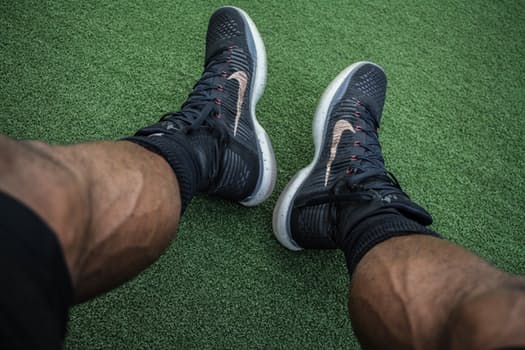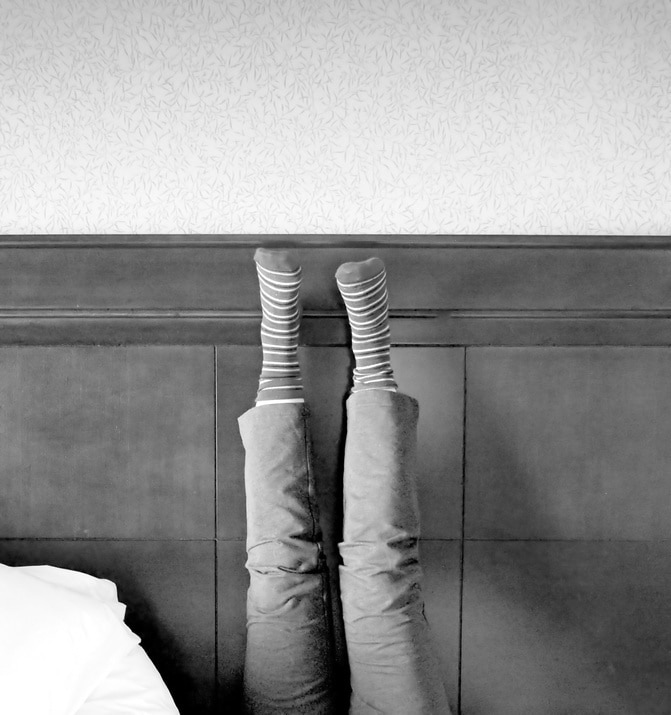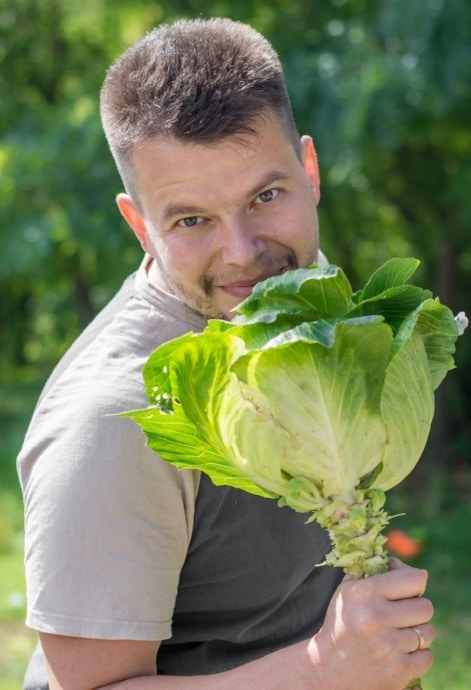Could Low Testosterone Increase the Risk of Varicose Veins in Men?

It’s a common misconception only women suffer from varicose veins, however, it is estimated that somewhere between 15% and 45% of men will develop varicose veins or venous insufficiency at some point in their lives. The exact number is unknown, primarily because a significant number of men do not seek treatment for vein disorders.
There are several factors that contribute to varicose vein formation; genetics, age, diet, exercise, stress, and weight are all important to vein health. But gender is also considered a risk factor and there are some indications that our “sex hormones” may be the culprit - particularly estrogen.
Estrogen in Men? Definitely!
While women synthesize most of their estrogen in their ovaries and other reproductive tissues, men produce estrogen through a process involving an enzyme called aromatase. Aromatase is found in many tissues including gonads, brain, adipose tissue, blood vessels, skin, and bone. Aging men sometimes have too much aromatase activity, which causes their testosterone to convert to excess estradiol, the predominant form of estrogen.
Estradiol is a known contributor to varicose vein development in pregnant women; it shrinks and impairs the function of venous valve flaps, breaks down the integrity of venous walls, and causes blood vessels to dilate, or get wider. So what does estrogen have to do with varicose veins in men? It could be a lot!
While it is too small to be clinically significant, a study published by researchers at the Universitat Leipzig in Germany noted that all of the men in their study with varicose veins had higher levels of estradiol and lower levels of testosterone (low T) compared to the men with healthy veins. What this shows is that estradiol alone is not the culprit, rather the ratio of estradiol to testosterone appears to be the determining factor.
As men age, testosterone levels naturally decline. Where a younger man’s testosterone to estrogen levels might naturally be 50:1, an older man might experience a ratio of 8:1. What the science seems to suggest is that when the ratio of estrogen to testosterone is out of whack, men are at higher risk for developing vein disorders.
Concerned About Your Vein Health?Click Here to Download a Self Assessment |
Restoring Hormone Balance is Good for Vein Health
The hormonal system helps to govern all aspects of the bodies’ functions. Its interconnectedness is complex; its balance is somewhat delicate and can be easily thrown off track. We are bombarded by stories about potential hormone disrupters and estrogen mimickers that some fear, are messing up these complex systems. Regardless of whether this is true, there are many lifestyle choices that men can make to help maintain—or restore—hormonal balance and improve their vein health.
- Maintain a healthy weight. Obesity is a significant risk factor, both for overproduction of estrogens and for varicose vein formation. Not only do the extra pounds increase strain on the vascular system, but also fat cells are particularly rich in the enzyme aromatase. The more aromatase in the system, the more testosterone will be converted to estradiol.
- Manage your stress levels. Cortisol, the hormone associated with the “fight or flight” response, increases when stress levels are high. High cortisol levels inhibit testosterone production.
- Get good quality sleep. Most testosterone is produced when we sleep. Actually, a lot of important things happen only when we are sleeping. Plus, sleep is just awesome.
- Nourish your body. It is important to eat a wide variety of whole foods in order to get the building blocks required for good hormone production and balance.
- Exercise the right amount. Moderation in all things. Studies have found that men who exercise a LOT have lower testosterone levels than their counterparts who exercise a moderate amount.
Men who develop varicose veins should consult with a qualified vein specialist to determine whether their vascular system is compromised, and what can be done to improve venous blood flow back to the heart.
Tempe-based vein specialist, Jilanne Rose of Advanced Vein Institute of Arizona, has noticed that men tend to wait until their veins get painful—or worse—before seeking treatment. Because of this tendency, she encourages everyone to look out for the vascular health of the men—and the women—in their lives.
And these days, Jilanne adds, it is easier than ever to improve vascular health. Vein treatments are less invasive, less painful, less expensive and more successful than they have ever been. Simply make an appointment with a qualified vein specialist who can precisely determine the health of your lower extremity veins, and help you make informed decisions about what treatment (if any) is right for you.
Leg Cramps There are many reasons for muscle cramps. A lot of people experience them because of a deficiency of certain key elements such as potassium and magnesium. Others, particularly those that live in warmer climates such as Arizona, experience cramps due to dehydration. A large number of patients I consult, flat out do not…
Read MorePregunta: yo tenía EVLT por otro doctor de la vena y resolvió la mayor parte de mi dolor. Cuatro semanas después de que tuve escleroterapia con espuma, mi dolor regresó. En realidad, ha empeorado. Un mes post, me pongo 30-40 mm medias diarias, pero aún así me duele mucho. Veo a mi médico en un…
Read MorePregunta: el calcetín de compresión de rodilla alta está pellizcando la parte superior de mi rodilla y dejando marcas doloridas (muescas). Mi trabajo requiere que me quede todo el día. Tengo venas de araña en mis tobillos y en el costado de mi pantorrilla exterior. ¿Debo seguir gastando la media aunque sea incómodo?
Read MoreQuestion: I had EVLT by another vein doctor and it resolved most of my pain. Four weeks after I had foam sclerotherapy, my pain returned. Actually, it has worsened. One month post, I wear 30-40 mm stockings daily, but still I hurt SO much. I see my doctor in a month, any thoughts about what…
Read MoreQuestion: The knee-high compression sock is pinching the top of my knee and leaving sore marks (indentations). My job requires me to stand all day. I have spider veins in my ankles and on the side of my outer calf. Should I continue to wear the stocking even though it’s uncomfortable?
Read MoreQuestion: I went to a doctor in Glendale and finished all my Sclerotherapy injections and have had 2 EVLT (endovenous laser therapy) procedures, a vein ligation and a microphlebectomy for spider veins, all of which I wore 20-30 mmHg compression thigh-high hose for 2-3 weeks. After I had laser treatments on my legs, I was…
Read MoreQuestion: I live in Tucson, Arizona and had VenaSeal done by a doctor here. Should I have pain and swelling after my VenaSeal procedure was carried out? It was purported to be painless compared to radiofrequency ablation (RFA).
Read MoreQuestion: I don’t know who to turn to. I take Furosemide and it doesn’t seem to be helping as fast as it should be. Do I need to see a podiatrist or do I need to get a referral to go see a specialist? I’ve been off work for 2 and 1/2 months from total…
Read MoreQuestion: My wife has had multiple ultrasounds. One ultrasound tech found a bad perforator at 5mm, but they wanted to do open surgery. Another ultrasound tech from the Dr she wanted to use who does laser and RF could not find the perforator. What to do?
Read MoreCabbage not always an “Irish” food, but beneficial for varicose veins Whether you’re one of the 34.5 million Americans who claim Irish ancestry or not, celebrating Saint Patrick’s Day has some potential health benefits! When the Irish immigrated to the United States, they found beef brisket was inexpensive, and nutrient dense cabbage was affordable and…
Read More

